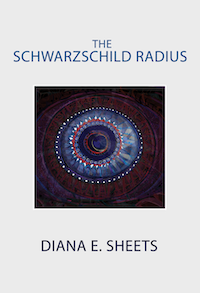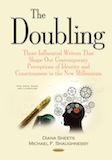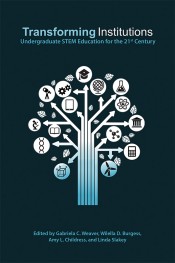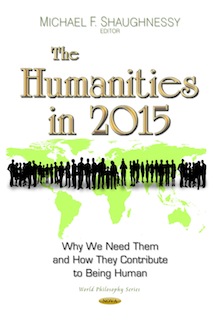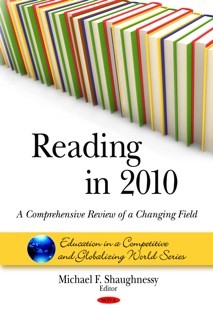The Great Books and Cultural Identity: The Rise and Fall of Western Memory and Its Implications for Our Time, Part II
Part II of the Great Books essay. This essay will be serialized in three parts. It is available in an edited collection Reading in 2010; A Comprehensive Review of a Changing Field, edited by Michael F. Shaughnessy and published in 2010 by Nova Science Publishers. A “read only” version of this essay may be downloaded at http://www.novapublishers.com/catalog/product_info.php?products_id=11835. Scroll down to essay 10, click on the title, and then click below the PDF icon. All copyright permissions must be obtained from the publisher.
Author:
English and History Departments,
Dedicated to Alvin B. Kernan
Whose scholarship celebrated the Western Canon
The Decline of the Great Books
What happened to undermine the societal norms that fostered excellence and the pursuit of knowledge? A foreshadowing of the circumstances that led to our decline can be gleaned by considering the circumstances in
In the hothouse of post-Nietzschean high culture, Enlightenment principles were jettisoned in favor of “irrationalism, subjectivism, abstractionism, anxiety, and technologism” (Schorske, p. xix). The expectation that knowledge would be passed on from generation to generation was rejected. Instead, politics, culture, art, architecture, and music—all embodying characteristics of the new age decadence—were no longer transmitted historically. Instead, they became unmoored from diachronic time and frozen in a synchronic stasis, unable to progress, yet no longer grounded by cultural antecedents (Schorske). Not surprisingly, Durkheim’s path breaking work, Suicide: A Study in Sociology, first published in France in 1897, characterized this vertiginous state of disaffection as anomie, a condition characteristic of a destabilized society in which the prevailing social norms have dissolved (Émile Durkheim, Suicide: A Study in Sociology, translated by John A. Spaulding and George Simpson, The Free Press, 1951, originally published in 1897).
This rupture in continuity was musically manifest in Arnold Schoenberg’s twelve-tone music. As with postmodernism in the late twentieth century, atonal music is characterized by relativism. It is missing a defining key and, therefore, lacking a tonal center. Musical storytelling disappears (to Western ears there is no song to hum), the ability to create and resolve tension is annihilated (the absence of a principal key prevents the migration away from and the return to a tonal center). What remains appears to the listener as a primitive sonic void: rhythm (beat), dynamics (loud/soft), and timbre (the quality of sounds conveyed by the instruments themselves) that together support an impoverished musical composition that, despite its acoustic complexity, is perceived by the Western ear as noise.
Fin-de-Siècle
Thus, modernism—Norwegian Symbolist, French Fauvist, Viennese Secessionist, German Expressionist, and English Post-Impressionist—severed its associations with the past. Although this first generation of practitioners on the eve of the First World War understood the culture they were annihilating, a half-century later Americans living in the “Age of Aquarius”—that ironic moment of illusionary triumph when our astronauts ascended to the moon while we descended intellectually into the wasteland of popular culture—effectively erased the foundations of Western Civilization from contemporary memory.
The philosophical foundations of our present decadence are based on the tenets of John Rawls as expounded in A Theory of Justice (Harvard University Press, 1971). His perspective is significant given that he is regarded as the “greatest political philosopher of the twentieth century” (Charles Larmore reviews Lectures on the History of Political Philosophy by John Rawls, edited by Samuel Freeman, The New Republic, February 27, 2008, 238, No. 3, p. 43). A Theory of Justice “changed the way the idea of social justice is understood, and provided the starting point for almost everything of note that has come afterward in political philosophy” (Larmore, p. 43).
Rawls’s social contract rests on the assumption that justice should be rendered from behind a “veil of ignorance” as a result of which, it may be presumed, individuals do not know their social class or ability or, for that matter, their future circumstances. His political philosophy has a dual foundation: a “liberty principle” based on equitable rights and a “difference principle” that ensures that the greatest benefit accrues to the most disadvantaged members of society. These principles are the basis for Rawls’s “justice as fairness” doctrine (Larmore, pp. 44-45), a reworking of the theory of “social justice” from “be fair” to a sustained advocacy of remedial social justice. This is a corruption of the well known Marxist doctrine: “From each according to his abilities, to each according to his needs” (as cited by Lawrence H. Simon in Karl Marx Selected Writings, Hackett Publishing Company, 1994, p. 315).
The consequence of accepting the tenets of Rawls’s A Theory of Justice as the philosophical belief system of late twentieth century
Thus, those members of society least capable of fending for themselves would disproportionately share in the resources. It was the natural consequence of the Russian Revolution (1917), which ushered in the “Demotic Life and Times”, an age when the values “of the people” prevailed at the expense of an Enlightenment tradition (Jacques Barzun, From Dawn to Decadence: 500 Years of Western Cultural Life, HarperCollins Publishers Inc., 2000, p. 773). This “anti-culture” reached its “high tide of demotics” in the second half of the twentieth century (p. 797), would eradicate the very foundations of Western Civilization, giving rise to triumphant individualism and identity politics that culminated in the “Culture Wars”.
The term “Culture Wars”—as it is applied to contemporary American politics—was introduced by James Davison Hunter in his study Culture Wars: The Struggle to Define America (Basic Books, 1991) to illuminate the fundamental ideological divide between conservatives and “progressives”. In what was later characterized as his “Culture War Speech”, Pat Buchanan spoke at the Republican National Convention before a prime-time audience on
Hunter and Buchanan were prescient. The impact of the “Culture Wars” in altering the social and cultural landscape of
For Lasch, the American “failure of nerve” results from a collapse of “bourgeois society”, which “has lost both the capacity and the will to confront the difficulties that threaten to overwhelm it” (p. xiii). This shortcoming stems from the inability of western society to comprehend “the course of modern history” (p. xiii). Liberalism—as was also the case in Schorske’s Viennese society—has become politically and intellectually bankrupt. Modern society has severed its links to historical time. This “waning of historical time” results in “presentism” (p. 3), a moment-by-moment means of living in which the past and the future are replaced by the eternal present. Consequently, we are continuously surprised as events unfold before us. By way of example, Lasch quotes a passage from Donald Barthelme’s short story “Robert Kennedy Saved From Drowning” published in his 1968 collection Unspeakable Practices, Unnatural Acts. (It should be noted, however, that Barthelme’s fiction, which is postmodern, is typically devoid of realism and a narrative arc. Instead, it is steeped in “presentism” and saturated with cultural relativism borrowed, to a significant degree, from the decadent German philosophers Husserl and Heidegger).
The Marivaudian being is, according to Poulet, a pastless futureless man, born anew at every instant. The instants are points which organize themselves into a line, but what is important is the instant, not the line. The Marivaudian being has in a sense no history. Nothing follows from what has gone before. He is constantly surprised. He cannot predict his own reaction to events. He is constantly being overtaken by events. A condition of breathlessness and dazzlement surrounds him. (as cited in Lasch, p. 3)
The literary writer, supersaturated in self-consciousness and lacking the historical and cultural foundations with which to position his or her characters within the world, rejects the social context of reality. Instead, we have the writer as narcissist who myopically constructs a solipsistic realm devoid of all external references.
The voyage to the interior discloses nothing but a blank. The writer no longer sees life reflected in his own mind. Just the opposite: he sees the world, even in its emptiness, as a mirror of himself. In recording his “inner” experiences, he seeks not to provide an objective account of a representative piece of reality but to seduce others into giving him their attention, acclaim, or sympathy and thus to shore up his faltering sense of self. (as cited in Lasch, p. 21)
The rise of the narcissistic self—concomitant with the loss of historical and cultural traditions—succeeded in eradicating the Western Canon. The result, as Lasch noted, is that in just two to three generations—and given that it has been more than thirty years since the publication of The Culture of Narcissism we may safely add yet a fourth generation—since the Judeo-Christian tradition, “so often invoked by educators but so seldom taught in any form, [has] passed into oblivion” (Lasch, p. 150).
But nowhere is the impact of the “Culture Wars” more effectively discussed and its ramifications made evident than in The Closing of the American Mind (Allan Bloom). Where once we had a civilization based on natural rights that was founded on the belief that people were united by common goals, now universality has been jettisoned in favor of a myriad of conflicting agendas. The result is that in educational institutions today openness to contradictory belief systems trumps an understanding of the importance of natural rights and, indeed, our heritage. Consequently, multicultural grievances prevail over commonly shared values founded upon a social contract and receptivity to “social justice” trumps fundamental truths that challenge the prevailing doctrine of “fair-mindedness”.
The recent education of openness . . . pays no attention to natural rights or the historical origins of our regime, which are now thought to have been essentially flawed or regressive. It is progressive and forward-looking. It does not demand fundamental agreement or the abandonment of old or new beliefs in favor of the natural ones. It is open to all kinds of men, all kinds of life-styles, all ideologies. There is no enemy other than the man who is not open to everything. But when there are no shared goals or vision of the public good, is the social contract any longer possible? (A. Bloom, p. 27)
As Allan Bloom noted, the Founders deliberately sought to suppress minority interests. They understood that factions threatened the common good. What has been lost today is an understanding of our civilization and the values that foster American exceptionalism. The result is that while postmodern diversity lays claim to openness it closes the door to intellectual inquiry. “Thus what is advertised as a great opening is [actually] a great closing [of the American mind]” (A. Bloom, p. 34).
It is with respect to values battling for primacy in the “Culture Wars” that Allan Bloom makes his strongest argument. Wars are fundamental disagreements about values. Since perceptions and world views guide and frame the way members of society live their lives, there can be no reasoning that permits accommodations of disparate values. Wars are fought in order to ensure that one set of cultural values prevail over another.
Liberal democracies do not fight wars with one another. . . . Cultures fight wars with one another. They must do so because values can only be asserted or posited by overcoming others, not by reasoning with them. Cultures have different perceptions, which determine what the world is. They cannot come to terms. There is no communication about the highest things. . . . Culture means a war against chaos and a war against other cultures. The very idea of culture carries with it a value: man needs culture and must do what is necessary to create and maintain cultures. There is no place for a theoretical man to stand. To live, to have any inner substance, a man must have values, must be committed, or engagé. Therefore a cultural relativist must care for culture more than truth, and fight for culture while knowing it is not true. (A. Bloom, p. 202)
This single paragraph suggests why the great books are no longer read and celebrated today. The cultural values that venerated our European heritage and the principles of American Exceptionalism no longer prevail. Western Civilization is viewed as hegemonic, intent on subjugating weaker nations and peoples. To study our history is perceived as an exercise in white male hegemony at the expense of the powerless. Postmodernism, celebrated by cultural relativists who dominate our academic and cultural institutions, minimizes Western Civilization, thereby contributing to its destruction in order to ensure that multicultural agendas will prevail.
Despite the prevalence of cultural relativism, it is essential to remember that the historical circumstances leading to the formation of our republic were without precedent. Our citizens must be apprised of our heritage and the documents that present the foundational narrative of our constitutional history: the Declaration of Independence, the Articles of Confederation, the American Constitution, and what is today referred to as the Federalist Papers. All told these documents and the values they engender helped to lay the groundwork for a society resistant to both aristocratic and autocratic influences. A cultural understanding necessitates learning not only the history of Western Civilization but also the distinguishing characteristics of American Exceptionalism since knowledge is the means by which we gain the fortitude to perpetuate these virtues. Which is not to deny our legacy of shortcomings, among which are acts of racism, discrimination, and sexism. But only through education will we obtain the wisdom to forge a better society.
Which brings us to Culture of Complaint (Hughes, 1993). Contemporary American society, according to Hughes, has become effete, no longer a nation capable of courage or heroism. What, then, might be its attributes? For Hughes, America is a decadent society in which decentralized interests override power, fairness replaces excellence, pity replaces justice, redemption supersedes virtue, victimhood trumps self-reliance, ethnic and social grievances erode universal values, and a pervasive child-centric universe annihilates adulthood. By way of illumination, Hughes quotes from W.H. Auden’s poem “For the Time Being: A Christmas Oratorio” (1944). In Herod’s soliloquy the king justifies his decision to massacre the Innocents. For Hughes these stanzas by Auden are nothing less than a prophecy for our times.
“Reason will be replaced by Revelation . . . Knowledge will degenerate into a riot of subjective visions. . . . Whole cosmogonies will be created out of some forgotten personal resentment, complete epics written in private languages, the daubs of schoolchildren ranked above the greatest masterpieces. . . .
“Justice will be replaced by Pity as the cardinal human virtue, and all fear of retribution will vanish. . . . The New Aristocracy will consist exclusively of hermits, bums and permanent invalids. The Rough Diamond, the Consumptive Whore, the bandit who is good to his mother, the epileptic girl who has a way with animals will be the heroes and heroines of the New Tragedy, when the general, the statesman, and the philosopher have become the butt of every farce and satire”. (as cited in Hughes, pp. 3-4)
What can be written about the social context of the “Culture Wars”? What began in the 1960’s as generational rebellion flamed by racial strife had by the 1980’s fundamentally altered our cultural landscape such that by 1987 American universities, colleges, and community colleges shifted from an emphasis on Western Civilization to a post-disciplinary focus based on “diversity” and identity politics (Louis Menand, “Undisciplined,” Wilson Quarterly, 2001, 25, No. 4. For the purposes of this paper identity politics encompasses Black Studies, Hispanic Studies, Jewish Studies, Women’s Studies and/or Gender Studies, Native-American Studies, Asian Studies, Middle-Eastern Studies, Post-Colonial Studies, “Queer” Studies, and those of a host of other ethnic and special interest groups that feel “oppressed” by traditional scholarship founded on Western Civilization.).
This transformation reflected a significant demographic shift in the gender and ethnic composition of full-time faculty. Prior to 1985 university teachers were only 28 percent women and 11 percent Hispanics or nonwhites. After 1985 full-time faculty were 40 percent women and 18 percent Hispanics or nonwhites (Menand). The changing gender and ethic composition of faculty in colleges and universities significantly altered the emphasis in education. Western culture, perceived as “hegemonic” and, therefore, brutally engaged in asserting its power over weaker nations and peoples, could no longer be taught as the foundation of our civilization.
Identity politics became the controlling ethos of humanities departments throughout the country. With the rise of identity politics came the dominance of “new left” agendas that politicized academic departments, thereby reducing scholarship to political jeremiads in support of ethnic and social causes at the expense of scholarly research. The result was that Western Civilization and the Great Books were marginalized as the domain of “dead white males” hostile to ethnic minorities and the socially disadvantaged and, therefore, worthy of destruction. The result, suggested Todd Gitlin, a professor at
Protected by the academic superstructure as a relatively cheap alternative to disruptive protest, the separate programs cultivate a rapture of marginality. For identity-based movements, the margin is the place to be. Within each margin, there are always more margins to carve out. Postmodernist thought confirms that there is no center; or, rather, that those who claim the center—who claim a common truth or even the possibility that any common truth is attainable—are false universalizers, colonizers, hegemonists. The center, if there is one, is the malevolent Other. But this false center—so the argument goes—is only a margin in disguise. The margins are bastions from which to launch intellectual raids on a center that has no right to be central and has, moreover, lost confidence in itself. (“The Cant of Identity” as cited in Theory’s Empire: An Anthology of Dissent, edited by
Thus the metaphor of immigrants assimilating in the “melting pot” was replaced with that of a “salad bowl” in which ethnic groups collected, asserting their distinctive identity and particular grievances. Under these circumstances Western Civilization and the Great Books were, at best, one focus among many with the emphasis increasingly on multiculturalism and popular culture at the expense of foundational truths about our heritage.
However, not only was Western Civilization denigrated—now routinely attacked as the bastion of powerful, Caucasian men intent on exerting colonial tyranny—it was replaced with a feminized worldview in which the focus was no longer on the competitive jousting of intellectual ideas for dominance but rather on the advocacy of remedial justice with its emphasis on assisting children and the socially and economically disadvantaged members in our community, a philosophical perspective championed by the aforementioned John Rawls.
To understand the implications of this shift we need only read Sexual Personae (Camille Paglia, Yale University Press, 1990), which depicts the relationship between men and women as a battle between the sexes in which men, at their most heroic, are engaged in a quest for discovery and women, almost universally, are motivated by a primal drive to fulfill their biological destiny. In this war of competing agendas, the female drive for offspring threatens to annihilate the male quest for innovation. It is a primal war with potentially catastrophic consequences. Were Camille Paglia not a lesbian and, therefore, celebrated by those members of the academic community who extol identity politics, it is questionable whether this “anti-feminist” book would ever have received the attention it so justly deserved.
Thus, the prominence of John Rawls’s theory of “social justice” and the triumph of feminized virtues gave rise to identity politics at the expense of Enlightenment thought and the Western Canon. As Allan Bloom so rightly pointed out, there can be no accommodation in a culture war. One set of values must prevail over another. Either we embrace multiculturalism and “social justice” or we begin to rebuild the traditions and standards necessary for a culture of excellence. This requires a commitment to marriage and families and rigorous education. It must be a “manly” society based on competition that stifles identity politics and, in Robert Hughes’s memorable phrase, quells the “culture of complaint”.
In physics, it should be noted, the state of maximum entropy, known as chaos, occurs when all values become relative, that is, when everything in the universe is considered of equal value. Relativism in the physical world causes a state of maximum entropy and, therefore, a state of maximum uncertainty. It has a destructive capability second to none. The parallels between science and civil society are unavoidable. Must we permit everything to be socially and culturally relative and, if so, are we prepared to live with the “Heat Death” of our World?


